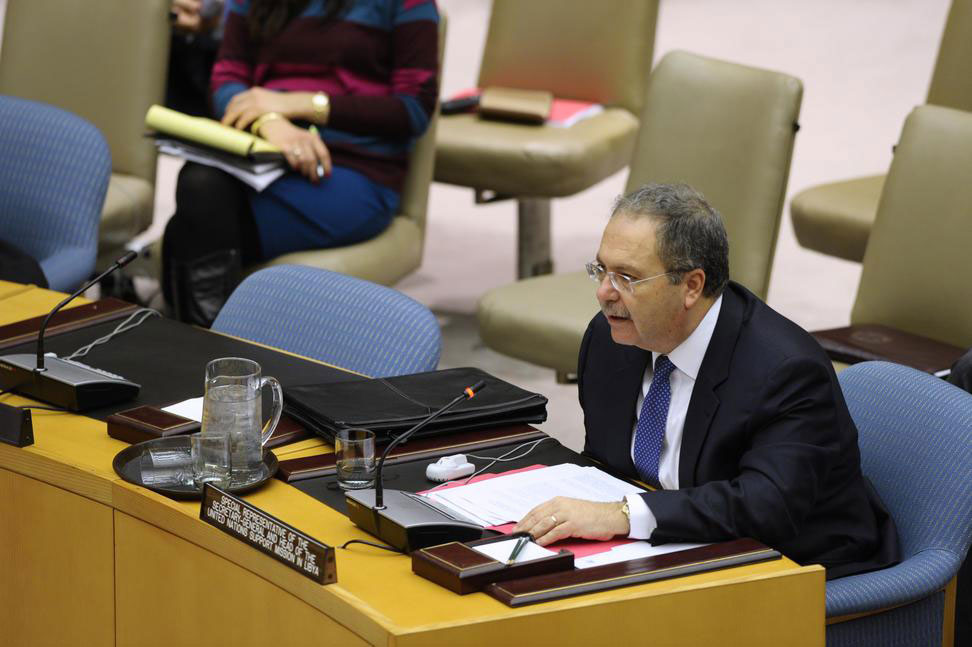By Libya Herald staff.

Tripoli, 9 December 2013.
Libya’s “excessive” political polarisation will be resolved only though national dialogue, the UN Envoy in . . .[restrict]Libya, Tarek Mitri, told the Security Council in New York today.
Detailing the continuing downward security spiral in his latest briefing on Libya today, the Special Representative of the Secretary General said that although the new Transitional Justice Law approved last week by Congress and yesterday’s freeing of four Bani Walid leaders by Zawia were positive contributions to the process of establishing the rule of law and achieving national reconciliation, there had to be a single reconciliation process to defuse the polarisation that was so damaging to the country.
Dialogue had to involve all the parties and the main armed groups, Mitri stated, especially given that there were doubts “about how comprehensive or lasting” the decisions of some militias to quit Tripoli would be.
For its part, the UN Support Mission in Libya (UNSMIL) was actively helping facilitate a number of national dialogue initiatives, he said.
One major difficulty he noted was the ability of some groups in Libyan to misunderstand events, pointing the problems following the announcement that the UN was sending a 235-strong to provide protection for its staff in Libya.
It had been presented in some quarters as evidence of international intervention, he said, and both the UN and the Libyan authorities had been forced to explain and “ state the obvious”. It would not be the last time this happened, he suggested to Security Council members.
“We will have to spare no effort in dispelling misinterpretations and suspicions, no matter how unjustified they may seem, and reaffirming the role of the UN support mission in Libya, committed to the full respect of its national sovereignty.”
On the issues of arms control and the elimination of supplies of mustard gas and uranium fissile material, known as yellowcake, Mitri announced that an inspection team from the International Atomic Energy Agency (IAEA) would be visiting Libya this month” to verify existing stockpiles and conditions of storage”.
He indicated ongoing concerns about the yellowcake, 6,400 barrels of which were stored “in a non-functional former military facility close to Sebha”.
A team from the Organisation for the Prohibition of Chemical Weapons (OPCW) was also expected this month to observe the destruction of the mustard gas “in line with Libya’s obligations under the Chemical Weapons Convention”.
As for man-portable surface-to-air missiles (MANPADS), the UN envoy said that UNSMIL had asked the Libyan authorities for more documentation on those under their control.
[/restrict]








